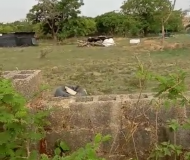
Why Due Diligence is Important in Real Estate Investing due diligence
If you are planning to venture into real estate investing, and have done some research, I’m quite sure you’ve already encountered the phrase “Due Diligence” many times over. What then is due diligence and why is it very important in real estate investing?
Due diligence in real estate investing is a process where you are taking the necessary and reasonable steps before the acquisition of a property and this may include, but is not limited to, conducting research and analysis that would cover the physical, legal, and financial aspects of a property.
Whether you are buying a small piece of land or a commercial building, conducting a through due diligence examination of the real estate is absolutely imperative to you as a buyer. The real estate industry in Nigeria is laced with horror stories in which buyers are stuck with serious problems from poor due diligence examination of their real estate purchases.
A lot of Nigerians have fallen for one real estate scam or the other, especially those who buy properties from Omoniles. People become easy prey for real estate scam artist mostly because they fail to do their due diligence before entering into a real estate transaction or during the process of a real estate deal.
Due diligence is a very crucial aspect of a real estate transaction that cannot be wished away no matter the people involved. Most people who have lost money in real estate did not do as much due diligence as they should do.
Just like the manner most of us nosedived into the popular Ponzi scheme that is now on sabbatical, a lot of Nigerians embrace any offer that is too good to be true. Even after visible red flags people go ahead to acquire properties probably because it’s a good bargain. The aftermath of such is wailing and gnashing of teeth.
Doing your due diligence before investing in a piece of real estate saves you a lot of heartache. And to think some people actually buy properties that they have no idea of the location of the property they acquired. In far worst situations, the owner of the property might not even know those involved in the transaction asides that relation or friend who helped to acquire the property. This happens often with people that live in the diaspora. Such deals could be highly risky.
Some persons avoid due diligence completely because it can be tedious, time consuming, and may require a lot of legwork. Which is why you should only do a “reasonable” amount of due diligence on properties that you have already pre-screened and have made it into your shortlist. You can’t do your due diligence on every property you see, that would be a recipe for wasted time, money, and effort.
Defining what is a “reasonable” amount of due diligence would greatly depend on the circumstances behind the deal or the property you are looking at.
Make no mistake though, no matter how tedious conducting due diligence may seem, it is definitely something a real estate investor cannot do without. The good thing about due diligence is it becomes easier with practice, and you can even outsource it if needed.
If you are hard pressed on giving an offer for a property because you believe there are a lot of other interested buyers, then you need to do your due diligence fast so you can submit your offer before your competitors. In this case, a reasonable amount of due diligence might be limited to the bare essentials or non-negotiable’s.
On the other hand, if a deal has no urgency, a more thorough due diligence can be done. For example, if you believe that a property has been in the market for so long with no takers, but you still believe the numbers look promising, then you have the luxury of taking your time to do a more thorough due diligence.
As the late Benjamin Franklin said, “An ounce of prevention is worth a pound of cure.”, and that is exactly what due diligence is for. It should prevent you from buying a property that has problems or will give you problems down the road.
It is far better and easier to just walk away from a problematic property before you purchase it, than trying to “cure” its problems (which can be very costly) or dispose it later (it might even be harder to sell) after you have already purchased it and parted with your money.
Don’t go crying blue murder, when the actual killing was carried out by you. To be forewarned is to be forearmed.
Source: http://nigeriarealestatehub.com





